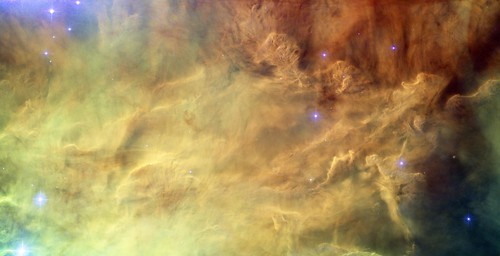Leeds Beckett University - City Campus,
Woodhouse Lane,
LS1 3HE
Ex-files, not X-Files
In this post Leeds Met expert Dr John Elliott discusses newly released files that suggest that The Ministry of Defence closed its UFO desk because it served "no defence purpose" and was taking staff away from "more valuable defence-related activities".
In recent days, the media have focused on the now long closed UK's UFO office. Ex-files, rather than X-Files! Quotes at the time, from officials stated that it was "consuming increasing resource, but produces no valuable defence output" and "in more than 50 years, no UFO sighting reported to [the MoD] has ever revealed anything to suggest an extra-terrestrial presence or military threat to the UK". Memos also went on to state that "no defence benefit" in the recording, collating, analysis or investigation of the sightings, adding: "The level of resources diverted to this task is increasing in response to a recent upsurge in reported sightings, diverting staff from more valuable defence-related activities." Whatever they are?!
I suppose, what surprises me most is that we had a UFO office at all. Listen to the public, when there is no political will, need or votes in it. Unlikely! Probably as likely as a UFO sighting! It must have been an unwanted splash of colour on the grey Whitehall suits. Then again, logically, UFO stands for Unidentified Flying Objects and does not necessarily mean looking for flying saucers and little green men 'buzzing' our Planet. So, from a military perspective, they are obviously content with their technology and do not require additional 'eyes' on the sky.

Photo used under Creative Commons licence and courtesy of NASA Goddard Space Flight Center.
Having said that, as a SETI researcher, our viewpoint is a very sceptical one and most, if not all, SETI scientists do not believe we are likely to be receiving a visit. Distances are vast, and as far as we know, the speed of light is a good as it will ever get... probably a lot less. The cost in time and resources will then be such that 'popping' over to have a look, would be prohibitive. In Searching for Life, outside our own evolutionary tree and biosphere, we have to base all our core science from observable fact. If any branch of scientific endeavour is vulnerable to scepticism, it is ours. However, now Planets are being detected on a regular basis, and due to our insistence for scientific rigour, over the years, Institutions such as the Royal Society now officially take our work seriously. If fact, I have presented work at the Royal Society on the Search for Life's Signatures and more recently, Professor Martin Rees (Astronomer Royal) has become the patron of the recently formed UK SETI group, which I am a founding member. Investigating the limits of knowledge and extending into the unknown is how great innovation often occurs.
On one hand, it is a shame that such an office closes, as it makes us less somehow and we need to have an open mind to explore. To use the accountants pen to quash outside [public] involvement, and close yet another door simply fuels the conspiracy theorists. Some event one day might even balance the books! On the other hand, we need to ensure that the hard science is not diluted by contributions of pure fiction (malicious or not). Imagination is important but only when we maintain the distinction. When we detect other life, it is almost certain that it will be through a telescope detecting a technological beacon or chemical signatures from an atmosphere on a Planet many light years away...unless we find evidence from our own Solar System, of course.
Dr John Elliott
John's research interests range from language structure, behavioural modelling, and architecture of the mind to an ethical decision engine for robot soldiers, sense synesthesia and global impact strategies to manage the dissemination of information and societal impact. He is a former lecturer at Leeds Beckett University.




